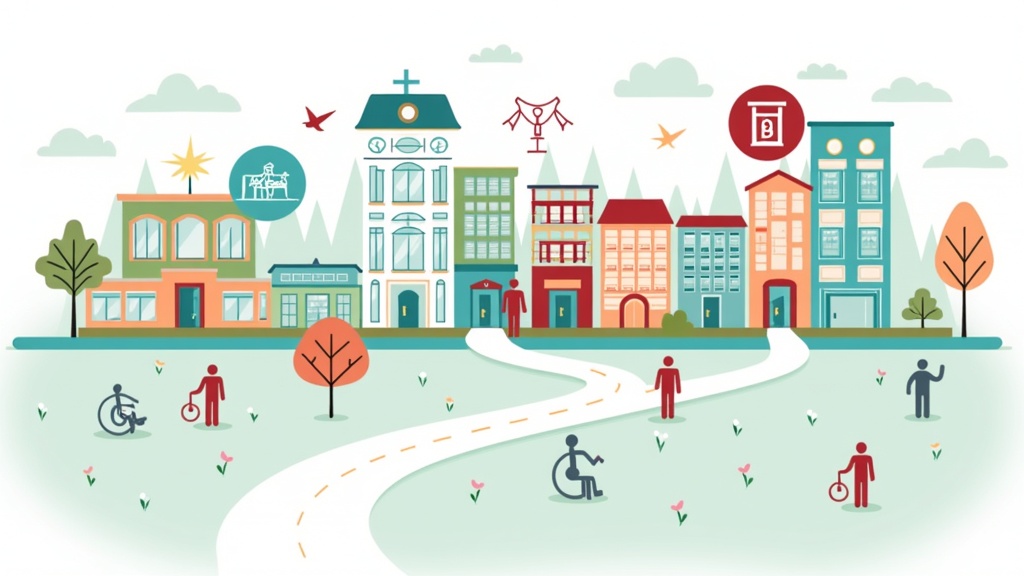Standing up for people with special needs really makes everyday life better, fairer, and more welcoming. Being someone who stands behind others can mean anything from speaking out for a child’s right to extra support at school, to helping an adult find their way around housing or healthcare systems that aren’t always friendly to those with disabilities. There’s a lot to cover, so I’ll break down why speaking up really matters, how you can get involved, and practical tips I’ve picked up along the way.

Why Advocacy for Special Needs Matters
Everyone should have access to opportunities and support, yet people with special needs regularly face roadblocks that can keep them from getting the most out of school, work, or daily life. Standing behind others helps lower these barriers and gives everyone a voice, especially in places where rules, resources, or attitudes haven’t caught up to real needs.
Advocacy isn’t just about making new laws; it’s about making sure people with special needs aren’t forgotten, dismissed, or misunderstood at school, at work, or in their communities. It helps to level the playing field so everyone gets the chance to do well.
According to the CDC, 1 in 6 children in the U.S. has a developmental disability. That’s a huge number of folks whose lives can get a boost with just a bit more support and understanding. And it’s not just kids—many adults count on advocates too, whether it’s for workplace help, healthcare, or living on their own.
What Advocacy Looks Like in Real Life
Standing up for others comes in many forms. It might be as official as working with legal teams to fight for disability rights, or as simple as helping someone explain what they need during a doctor’s visit. I’ve helped friends and family work through tricky paperwork for education plans (like IEPs at school), and I’ve watched parents push for therapies or devices that truly help their kids grow.
- Personal Advocacy: This is when you or a family member speak up for yourself or someone you care about. It’s especially important in IEP meetings, doctors’ visits, and work reviews.
- Peer Advocacy: Sometimes people with special needs lift each other up by offering support and advice in similar situations. This can create a strong community connection.
- Legal and Systemic Advocacy: Larger organizations or groups might focus on changing policies or laws, making things better for people with disabilities everywhere. Think of associations working to get new rights recognized or pushing back against unfair practices.
Every type of standing up for others matters, and sometimes the biggest shifts come from everyday conversations—like asking for a classroom change or requesting captions on workplace videos.
How to Become an Effective Advocate
Taking action can seem tough at first, but focusing on a few basics can help you start making an impact. Here’s what typically works:
- Get Informed: Learn about local laws, people’s rights, and available support. Lots of reliable websites, groups, and government resources exist. The Wrightslaw website is great for special education information.
- Communicate Clearly: Whether you’re writing a letter or talking at a meeting, being straightforward helps others understand what’s needed. Keep documents handy, take notes, and clearly sum up your main points.
- Build Relationships: Connecting with teachers, doctors, therapists, or employers helps smooth the way. Mutual respect and teamwork are valuable for solving problems.
- Follow Up: Sometimes things get forgotten. Checking in politely to make sure plans actually happen keeps progress moving.
- Find Allies: Other parents, disability groups, and online forums are great for sharing ideas, asking advice, or learning what has worked for others.
Big Challenges in Advocacy and How to Tackle Them
Those who speak up often face common issues. Here’s what helps make things go smoother:
- Complex Processes: Special education and healthcare systems can be confusing with lots of paperwork. Breaking things into steps, asking questions, and checklists help keep things manageable.
- Bureaucracy: The system is sometimes slow or filled with rules. Staying polite but persistent, bringing organized paperwork, and knowing your rights work better than getting frustrated.
- Misunderstandings: Many people don’t “get” what specific disabilities mean. Sharing simple, clear information or real-life stories makes a big difference.
- Accessibility Issues: Physical barriers like stairs without ramps or digital barriers like videos with no captions are still too common. Pointing out these issues and suggesting solutions can eventually lead to change.
Handling Complex Processes
IEPs and disability supports usually need a lot of attention, meetings, and papers. Keep a folder with notes, medical paperwork, and old plans. If you’re confused, asking about anything is the best way to clear things up—most people will help if they’re asked.
Dealing with Bureaucracy
If you face pushback from the system, step back and gather what you need. Written requests and extra paperwork often help get things moving. More experienced community advocates or support organizations are also great for advice and tips.
Tackling Misunderstandings
Lots of folks have a limited idea of what disability looks like. Bringing statistics, sharing personal experiences, or referencing stories from movies and books can help others get a sense of what adaptations are truly needed. Especially for invisible challenges, a little extra explanation goes a long way.
Fixing Accessibility Issues
Advocacy plays a huge role in making public spaces, events, and online content more open to everyone. Noticing a building without ramps or a website without alt text? Letting someone know or bringing it up at a meeting can get the ball rolling for change.
Good advocacy means sticking with it, even when it feels tough. Practice builds confidence, and small wins lead to bigger ones over time. Each step you take matters for someone’s access and dignity.
Tips and Tricks for Better Advocacy
Over the years, after lots of IEP sessions, insurance appeals, and sometimes awkward talks with local leaders, I’ve found these tips can really help:
Document Everything: Put all your notes, emails, and letters in one spot. During meetings, note who attended, what was discussed, and any plans set. This helps you notice next steps or support your case if you need to explain things later.
Practice Your Pitch: Sometimes you only get a moment to ask for support or explain your situation. Going over what you want to say in advance can help you stay calm and clear.
Start Local: Neighborhood schools, community centers, and local boards are usually easier to reach than national leaders. Starting small with local wins can help build momentum for bigger changes down the road.
Use Social Media: Online forums, Facebook groups, and websites make connecting with others or spreading information simpler and faster than ever. Just keep things respectful and factual to help your message go further.
Real-World Impact: When Advocacy Works
Standing up for those with special needs brings changes—sometimes big, sometimes small—that make daily life better. I’ve seen positive progress like:
- Access to Better Services: Advocates have helped schools bring in speech therapy, assistive technology, and occupational therapy for students who wouldn’t have had them otherwise.
- Improved Environments: Ramps, better signage, and events designed for sensory-sensitivity can welcome a wider range of people.
- Greater Awareness: Sharing stories and personal experiences helps break down stereotypes and encourage understanding.
A 2023 study from the CDC’s Disability and Health team reports that standing up for others has helped both physical and digital spaces become more inclusive in recent years—real proof that advocacy works.
Frequently Asked Questions
I get questions from people interested in speaking up for special needs but not sure where to start. Here are some common ones:
Question: How do I know what rights or services someone with special needs should have?
Answer: Check local laws and trusted sites like ADA.gov, or look into your country’s legislation about disabilities. Reaching out to advocacy groups is also a solid way to get accurate answers fast.
Question: Do I have to be a parent or expert to help out?
Answer: Definitely not. Self-advocates, friends, neighbors, and concerned community members all have an important part to play. Being willing to learn and willing to speak up is what counts most.
Question: Can small actions really make a difference?
Answer: Absolutely. Whether you’re asking for teaching materials in a new format, suggesting more inclusive town events, or flagging an access issue, these small steps all add up over time to real change.
Reasons to Step Up as an Advocate
Standing behind people with special needs changes lives, including your own. Helping to build access, acceptance, and inclusion is one of the most meaningful things you can do. If you’re thinking about jumping in, remember that every voice matters. Each action, big or small, pushes the world to be fairer and a lot more welcoming for all.

